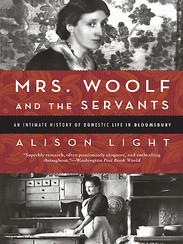
Before I talk about my responses to this remarkable book, I want to explain what I was trying to do with my play about the servant--which, by the way, is titled Lace Curtain Irish. It's a one-woman piece, and the one woman is Bridget Sullivan, who was a live-in cook and maid in the home of Andrew Borden of Fall River, Massachusetts. Yes, the Andrew Borden who was the recipient of eleven of the famous "forty whacks" presumably delivered by his daughter Lizzie's axe. The premise of my play is that Bridget was the actual wielder of the much-celebrated and conspicuous-in-its-absence ax (or hatchet). Everything in the trial transcripts supports that theory, as well as what is known about the habits, attitudes, history, character, and personality of LIzzie Borden.
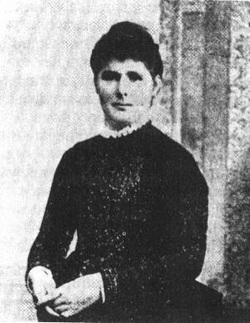 Only Known Photo of Bridget Sullivan
Only Known Photo of Bridget Sullivan Bridget had just been vomiting in the yard on the hottest day of the summer when her mistress, Andrew's wife, gave her the order to wash every window in the house, upstairs and downstairs, inside and out. In 1892, this entailed ladders, buckets, trips to an outdoor pump,brushes, and rags. Not surprisingly, Bridget had only washed a window or two before the arrival of the police and the discovery of Mrs. Borden's mutilated corpse.
One of the first actions by the police was a lock-down of the house. No one was allowed to leave. Oh, except the "Irish girl." She was allowed to leave the house to stay with a friend, taking with her an uninspected bundle of possessions. After all, she was just the maid.
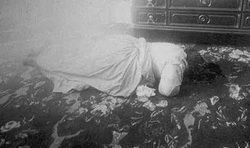 Abigail Borden After Abusing the Servant
Abigail Borden After Abusing the Servant 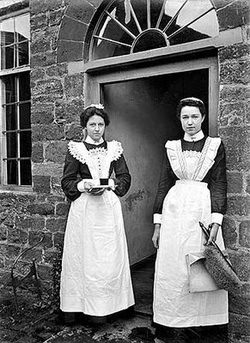
In spite of this appallingly exploitive situation, employers expected loyalty and gratitude from their servants. They saw themselves as role models and mentors for their servants, introducing them to a life of refinement and morals that working-class folks presumably could not be expected to find among their peers. Employers felt entitled to enter a servant's room at any time, and to search their possessions without permission. All of this was for the good of the servant, of course.
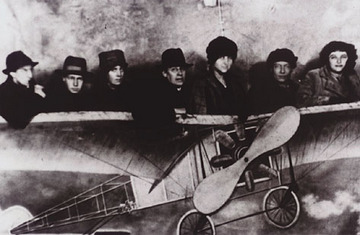 Bloomsbury Group Photo from Vanessa's Collection
Bloomsbury Group Photo from Vanessa's Collection This must have been enormously confusing for the servants. With the old upstairs/downstairs boundaries gone, where were the new ones? No one seemed to know. The Woolfs would host political meetings in their home which the servants would attend as fellow socialists... at least until it was time to cook dinner. In spite of her repeated attempts to include working-class characters in her books, Virginia would usually end by editing them out of the final revision, acknowledging her near-total ignorance about their lives.
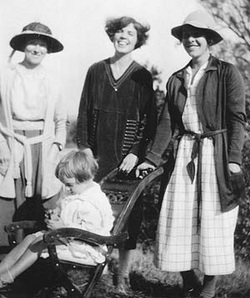 Nellie on the Left and Lottie in the Center
Nellie on the Left and Lottie in the Center 1) The time when Virginia's cook ordered her out of her room and Virginia pitched a fit.
2) The fact that two of her servants appeared to have been in a relationship of primary intimacy during the eight years when they lived under Virginia's roof and shared a bed in their room together.
The first stands out because Virginia Woolf is famous for her 1929 treatise, A Room of One's Own, where she argued passionately how women's creativity had been and was continuing to be stunted by their lack of access to a room that was their own. So here we have Nellie Boxall, thirty-seven years old, who has been living with and working for Virginia for eleven years... for five pounds a year, working 341 days per year... and Virginia, who is fighting with her, enters Nellie's room. What does Nellie do? She orders her out. And what is Virginia's reaction? Does she applaud her for defending her territory? Here is Light's description:
"Nellie had got above herself; in reality the room was not 'hers.' Being treated like a servant was so painful and humiliating that Virginia went straight to Leonard and determined to sack Nellie by Christmas. The 'famous scene' was relived in her imagination many times. She found herself muttering and rehearsing arguments, unable to work, sick and shivery, trembling with anticipation at the day... when she would give Nellie a month's notice. She wrote in her diary as if possessed, copying out replies to Nellie, speaking their parts..." (p. 193.)
Wow. Just wow.
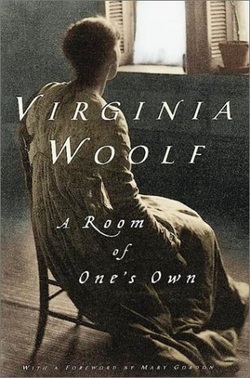
Nellie was the stouter, the butch. Lottie, rumored to have gypsy blood, was the more glamorous. Lottie had been a foundling, raised in the Home for Deserted Children, and Nellie, the youngest of ten, had been orphaned at twelve. Nellie's relationship with Lottie was protective and maternal. They shared a bedroom from the time they were twenty-one until they were thirty- four, and then again from fifty-one until seventy-five. It was an enduring love.
Did Virginia Woolf notice? How could she not? More to the point, what did Nellie and Lottie make of their employer who was not even ten years older then them? Virginia Woolf was a study in chronic discontent, in parsimony, in eating disorders... And then there was her sexless marriage with Leonard--something that would have been difficult to hide from the servants. And friendships? Virginia took malicious delight in writing scathing inventories of her closest women friends in her diaries, and she often peopled her novels with hateful caricatures of them. In the end, she took her own life.
In spite of their oppression, it was Nellie and Lottie who managed to find a room of their own and to fill it with loyalty and loving companionship. Too bad Virginia never took a page from their book.

 RSS Feed
RSS Feed
